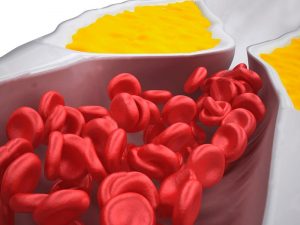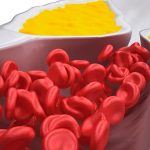Spirulina is a nutritional supplement full of digestible proteins of high biological value as well as vitamin and mineral elements. Around the world millions of people use it as a supplement in their diet since it is a superfood that helps with weight loss and spirulina algae powder has the advantage of more natural absorption. The United Nations (UN) recommends the use of microalgae such as spirulina powder against acute malnutrition in humanitarian emergencies; this alga was chosen by NASA to enrich the diet of astronauts during space missions.
Spirulina can be useful to combat diseases as varied as high cholesterol or hypercholesterolemia, diabetes or HIV / AIDS; scientific evidence affirms its benefits as a natural medicine.
Spirulina has the potential to combat malnutrition and deficit of essential nutrients; rich in proteins and antioxidants it makes it an interesting sports complement since it reduces muscular damage and oxidative stress that exercise can cause in people with little physical training, reduces physical exhaustion and helps recovery after exertion.
Regular consumption helps to control body weight and, thanks to its protein content, it complements vegetarian diets. However, a balanced diet combined with physical activity will always be the key to a good state of health. Consuming spirulina algae powder, together with foods rich in vitamin C, such as citrus fruits (orange, tangerine, lemon) facilitates their absorption.
What is Spirulina Powder?
Spirulina is a spiral-shaped microorganism made from the unicellular organisms Arthrospira platensis and Arthrospira maxima and credited as an alga due to its high chlorophyll content. It grows naturally in many freshwater lakes, rivers and lagoons, mainly in areas with moderate temperatures and high levels of sunlight. Spirulina has been growing on Earth for three billion years. In fact, the Aztecs and the Mayans knew of its healing effect centuries ago and used it daily as a complementary food.
Spirulina powder is produced through the following procedure:
- Fertilization. In order to have an intensive culture, macronutrients are added to preserve its nutritional properties. Fertilizers most frequently added are nitrates and bicarbonates through distribution channels.
- Harvest. The channels pump the solution containing the alga to the first filtration stage.
- Drying and Packaging. After filtration, spirulina passes through disintegrators in order to break the cell walls to make it more manageable. Then, a homogenizer removes the water and extracts the Spirulina powder. And, finally, in separating cyclones the Spirulina alga powder is collected for packaging.
- Packaging and Quality Control. This includes microbiological analysis and measuring of protein and pigment content as well as smell, color and flavor.
Spirulina Algae Benefits
Studies show it offers excellent health benefits such as:
- Increases muscle mass due to high protein content.
- Provides iron to the body.
- It is a source of vitamins A, E, D, B1, B2, B3, B6 and B12.
- Contains beta-carotene that protects the skin from harmful effects of the sun.
- It has an anti-inflammatory effect to relieve arthritis ailments.
- Provides minerals such as calcium, iron, phosphorus and chromium.
- Helps strengthen the immune system.
- Helps with weight loss.
- Helps to treat insomnia.
- Protects and nourishes the kidneys and liver.
- It is anti-anemic.
- Stimulates intestinal transit, fighting constipation.
- Helps to achieve higher intellectual, physical and sexual performance.
- It promotes heart health with the reduction of cholesterol and triglycerides.
Spirulina Powder Ingredients
Properties that provide nutritional value and make spirulina a superfood are:
|
Properties: |
Quantity/100g of spirulina powder: | Properties: | Quantity/100g of spirulina powder: |
| Energetic value | 348kcal | Iron | 62.5mg |
| Saturated fatty acids | 3g | Copper | 0.3mg |
| Monounsaturated fatty acids | 1.6g | Zinc | 3.3mg |
| Polyunsaturated fatty acids | 1.6g | Manganese | 2.1mg |
| Carbohydrates | 14.4g | Vitamin A | 13433µg |
| Sugars | 2.5g | Vitamin B1 thiamine | 3.5mg |
| Dietary fiber | 7.3g | Vitamin B2 riboflavin | 3.2mg |
| Proteins | 65g | Vitamin B3 niacin | 12.1mg |
| Salt | 1.5g | Vitamin B6 pyridoxine | 0.78mg |
| Phosphorus | 439mg | Vitamin B9 folic acid | 33µg |
| Potassium | 2120mg | Vitamin B12 cobalamin | 12µg |
| Magnesium | 232mg | Vitamin E tocopherol | 7.3mg |
Spirulina powder’s health benefits include:
- Inhibits appetite at the brain level because it is a large vitamin complex and also thanks to phenylalanine that acts directly on the hypothalamus. Thus, spirulina becomes a great ally in weight-loss diets.
- It invigorates adults, children, elderly and convalescents due to its high nutritional and energetic value.
- It is a nutritional adjuvant in the treatment of diseases caused by a deficiency of proteins, vitamins, minerals and trace elements, so it helps to balance these factors in the body and is easy to incorporate into the diet.
- It can help to control blood sugar levels in diabetics thanks to its amino acid ingredients, vitamins, minerals and plant chemicals such as phycocyanins and chlorophyll.
- Antioxidants such as phycocyanin, beta-carotene, superoxide dismutase and vitamin E protect the body against free radicals, stimulate the immune system, prevent cancer and accelerated aging. This antioxidant effect protects the eyes’ lenses, reducing the appearance of cataracts.
- Spirulina powder promotes lactation in mothers and has a poly-vitamin effect.
- It helps to improve blood circulation and due to its iron, folic acid and vitamin B12 content helps to fight several types of anemia.
- Is beneficial for patients suffering from pancreatitis, hepatitis and cirrhosis.
- Helps to strengthen the immune system.
Spirulina Algae Powder Amino Acids
Spirulina algae contain between 65 per cent and 71 per cent of proteins depending on the conditions of their culture and growth. It is one of its most surprising and useful factors because it provides the eight essential amino acids the body needs and in a way easier to digest than meat. They are:
- Isoleucine. Necessary for optimal growth, mental development and nitrogen balance to synthesize non-essential amino acids.
- Leucine. Stimulates brain function and increases muscular energy levels.
- Lysine. Contributes to the formation of antibodies in the blood, strengthens the circulatory system and maintains development of healthy cells.
- Methionine. Maintains liver health and intervenes to calm nerves, working as an anti-stress factor.
- Phenylalanine. Essential for the thyroid gland, promoting production of thyroxine that regulates metabolism.
- Threonine. Improves the behavior of the intestine and digestive assimilation.
- Tryptophan. Improves nerve health and emotional stability.
- Valine. Stimulates mental capacity and muscle coordination.
Please double-check the two noted in red below
Spirulina provides 10 of the 12 non-essential amino acids, also crucial for the production of enzymes, proteins, hormones, brain chemicals and much more. These are alanine, arginine, aspartic acid, cysteine, glutamic acid, glycine, histidine, proline, serine and tyrosine.











